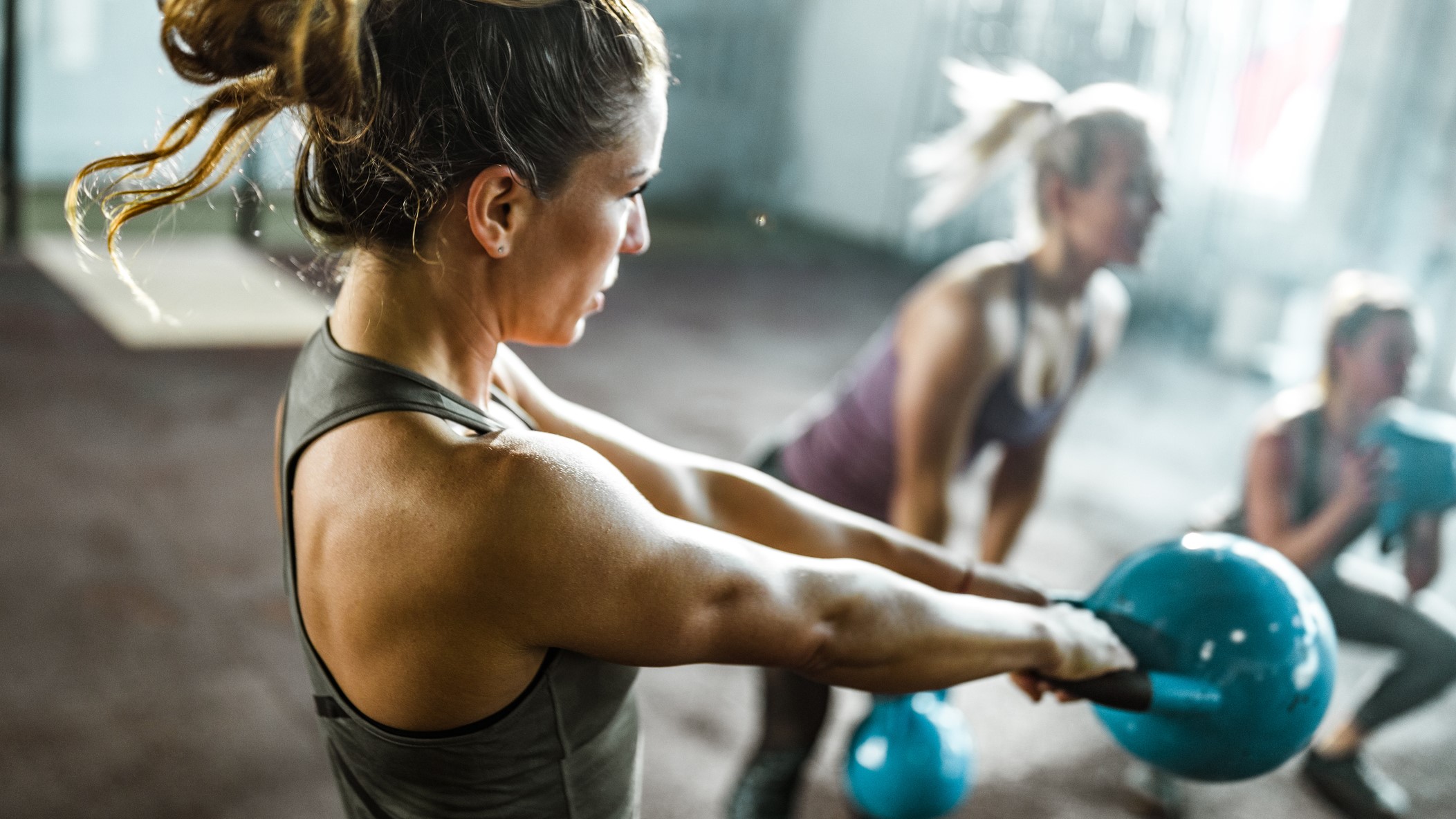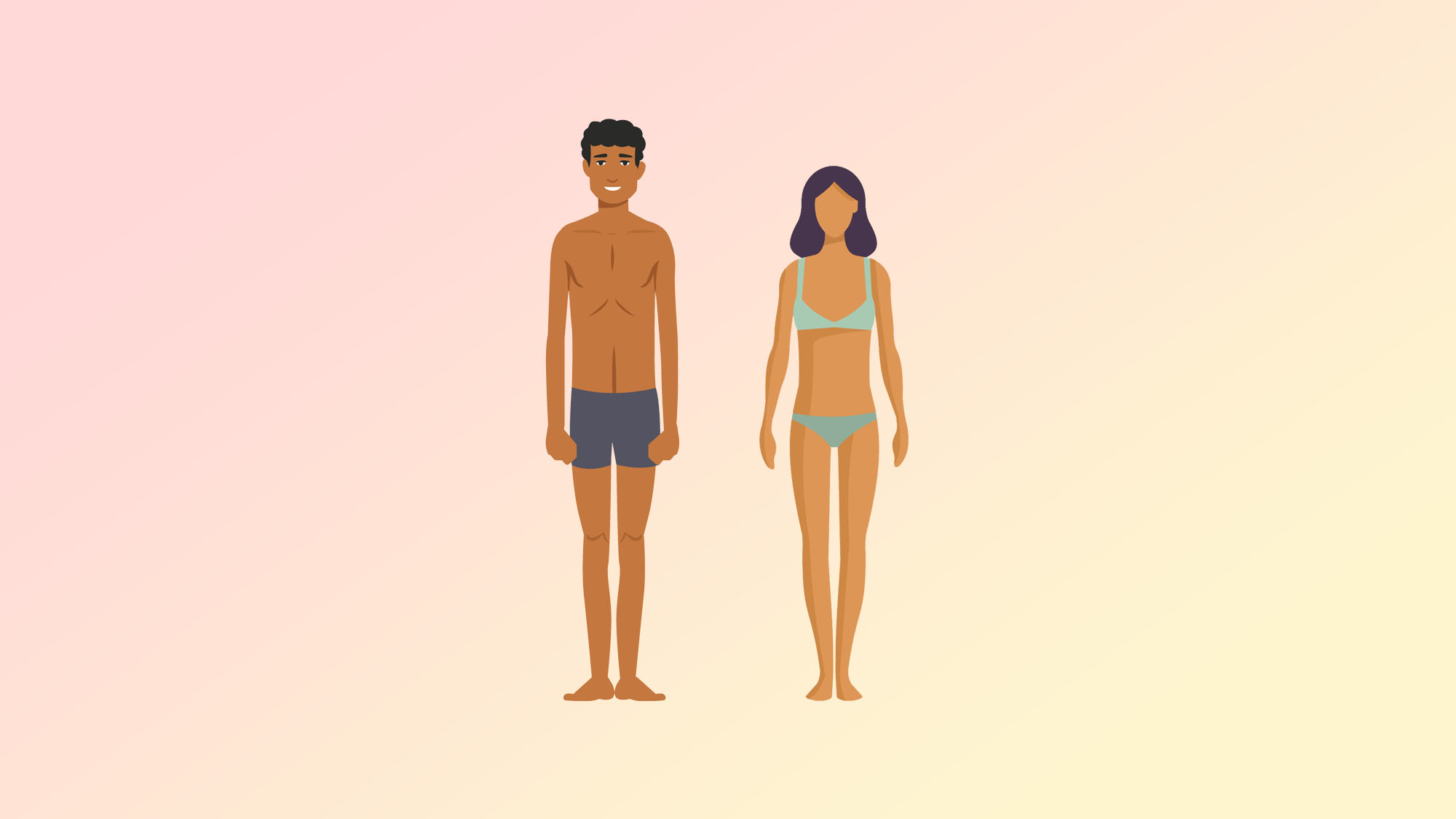Struggling to build muscle? The best exercises for an ectomorph body type
We asked a personal trainer

There are benefits to learning how to work out for your body type. In fact, the best exercises for ectomorphs do differ slightly from the best exercises for mesomorphs or endomorphs; the other two body types, also known as somatotypes.
Personal Trainer, Aimee Victoria Long, explains that ectomorphs will struggle to put on weight and size and will naturally possess a skinny frame. “If ectomorphs are looking to put on muscle, then they should be focusing their workouts around compound lifts. Compound lifts use large muscle groups and more than one muscle group.”
Compound lifts such as squats and deadlifts, ensure your body receives a greater stimulus, to encourage more muscle growth. Long adds that ectomorphs should be looking to work within a hypertrophy rep range, which is typically 10 to 12 reps per set. Hypertrophy essentially means the growth of muscle.
“Aim for three to four sets on each exercise and make sure you’re taking adequate rest between sets. I’d recommend two minutes but this can vary on the individual,” says Long.

Diet, fitness, and recovery tips for ectomorphs
To ensure muscle growth, it’s all well and good incorporating more resistance-based exercises into your regime. However, it’s also important to eat in a calorie surplus, which means eating more calories than you’re burning.
“By doing this, you will start building a good environment to aid muscle growth,” says Long.
As for recovery for an ectomorph, Long reveals that this is where nutrition is key. “Make sure you’re eating lots of protein, around 2.2 grams per kilo of bodyweight. Carbohydrates will also play a big role as they help with the transport of protein around the body that will help aid muscle growth and repair.”
Sign up to get the BEST of Tom's Guide direct to your inbox.
Get instant access to breaking news, the hottest reviews, great deals and helpful tips.
Good protein sources include lean meats such as chicken and turkey, eggs, dairy products, tofu, beans and legumes, and also fish. Recovery also requires good sleep, so ensure a healthy sleep hygiene routine and aim for seven to nine hours of shut-eye each night.
The best exercises for ectomorphs
Below, Long has listed the best exercises for ectomorphs. Build your workouts around these exercises and aim to train three times per week to help improve muscle mass.
Don’t forget to do three to four sets of each exercise with 10 to 12 reps per set. Make sure your weight is challenging, to encourage muscle growth.
Squats
Use a barbell for this move or hold a dumbbell on each shoulder.
Stand upright, with feet shoulder-width apart and toes pointing out slightly. Keep your core engaged and back flat as you push your hips back and bend the knees to drop down into a squat position. You want to drop down so that your thighs are at least parallel to the ground. Then, push up through the heels to rise back up to standing.
Deadlifts
Stand with feet shoulder-width apart, with your bar over your feet, just in front of your shins. Push your hips back, bend your knees a little and lean forward, keeping a flat back and engaging the core. Your neck should also be in line with your back. Grab the bar, placing hands just outside of the legs, with palms facing towards you.
As you push through your feet, drive up to standing, bringing the bar up with you. Keep your arms straight, and once you’re standing, squeeze the glutes. Then, bend the knees, push your hips back, and lower the bar back down to the floor, keeping it close to your legs as you do so.
Take a look at the best resistance bands for home workouts, and the best adjustable dumbbells for weight lifting at home here.
Bench Press
Lie back on a flat bench, feet flat on the floor, and hold a barbell right above your shoulders, with hands just a touch wider than shoulder-width apart. You may need a spotter or a rack for this move, especially if you’re using a heavier weight.
Engage your core and lower the bar down to your chest. Pause, then slowly press the bar back up. As you do this move, make sure your hips stay on the bench and try to avoid your back arching, as this can lead to injury.
Pull-Ups
Place your hands in an overhand grip position on a pull-up bar, with hands a little wider than shoulder-width apart. Engage your core and aim to keep your body straight, as you use your arms and back to pull yourself up, bending your elbows as you do so. The aim is to pull yourself up to the point where your chin is above the bar. Then slowly lower back down.
If you struggle with pulls up, try placing one foot in a resistance band to make the move a little easier, or start off on a pull-up machine.
Leg Press
Make sure you’re sitting comfortably on the leg press machine; ensure your bum is flat on the seat and your feet are hip-width apart on the footplate with heels flat and knees at a 90-degree angle. Make sure knees don’t come past the feet however as this can lead to injury. Engage your core, unlock the footplate, and press it away, pushing through your heels and midfoot.
Move the footplate slowly, pause when your legs are extended fully (although do avoid locking out the knees), and then slowly return the footplate to the start position.
Bent-Over Row
Grab a barbell with both hands in an overhand grip and allow your arms to hang down in front of you. Hands should be placed just wider than shoulder-width apart. Push hips back, keep knees soft and tilt your torso forward until it’s at about a 45-degree angle. Bend at the elbows and drive them upwards, until the bar reaches your sternum. Keep your arms close to your body as you do this. Pause at the top, then slowly lower the bar back to the start, keeping the core engaged throughout.
Standing Military Press
Stand upright, core engaged, and gaze forward with a barbell resting at shoulder height on your collarbone. Using the upper body, press the barbell up and extend the arms, without locking the elbows. Then, slowly lower the bar down.
The reason for it being called military? This is simply a way of saying that any push from the knees should be avoided.

Jane McGuire is Tom's Guide's Fitness editor, which means she looks after everything fitness related - from running gear to yoga mats. An avid runner, Jane has tested and reviewed fitness products for the past five years, so knows what to look for when finding a good running watch or a pair of shorts with pockets big enough for your smartphone. When she's not pounding the pavements, you'll find Jane striding round the Surrey Hills, taking far too many photos of her puppy.
